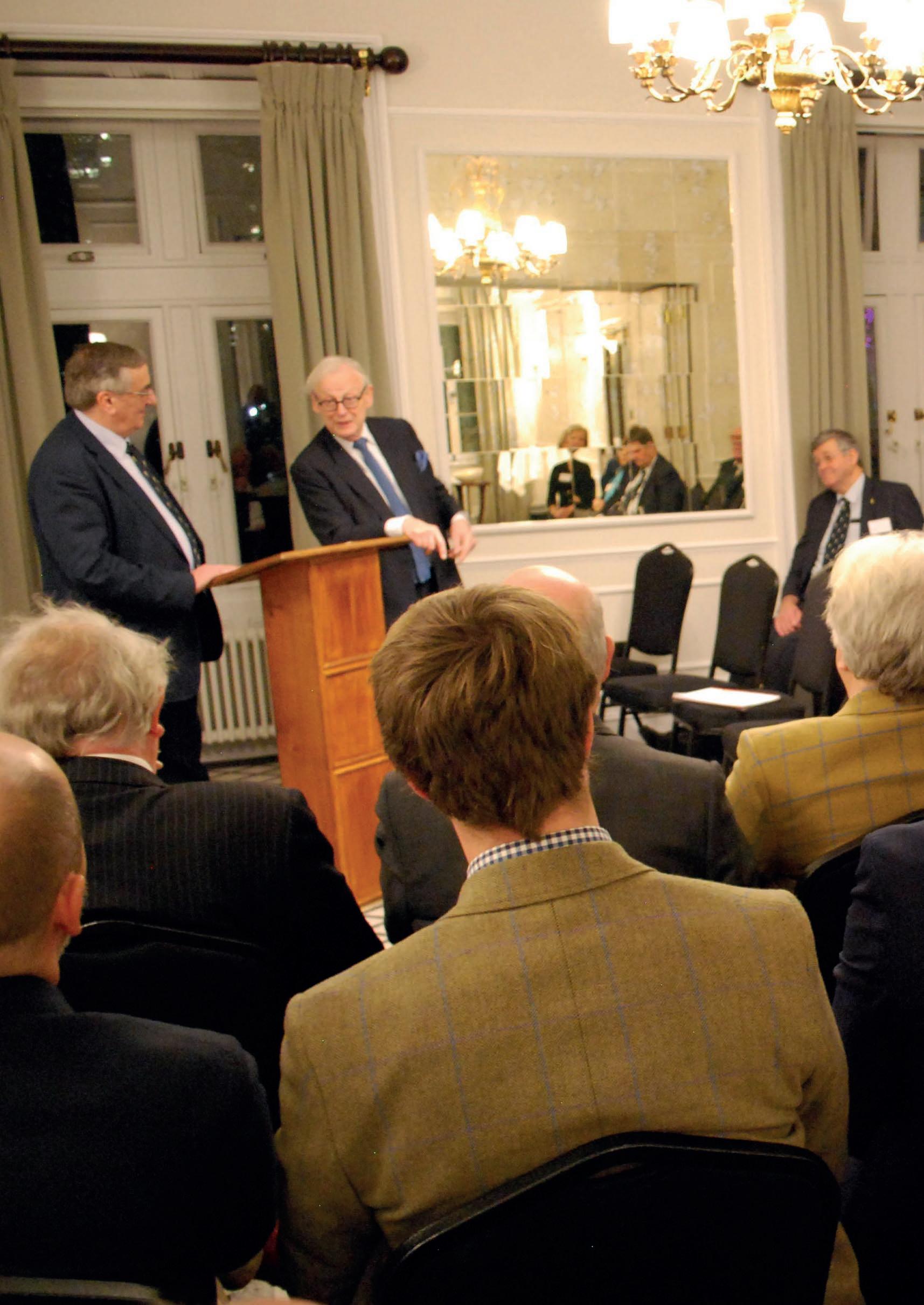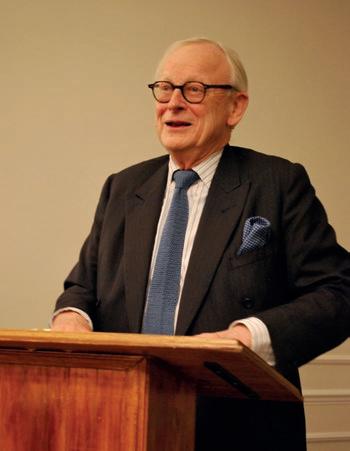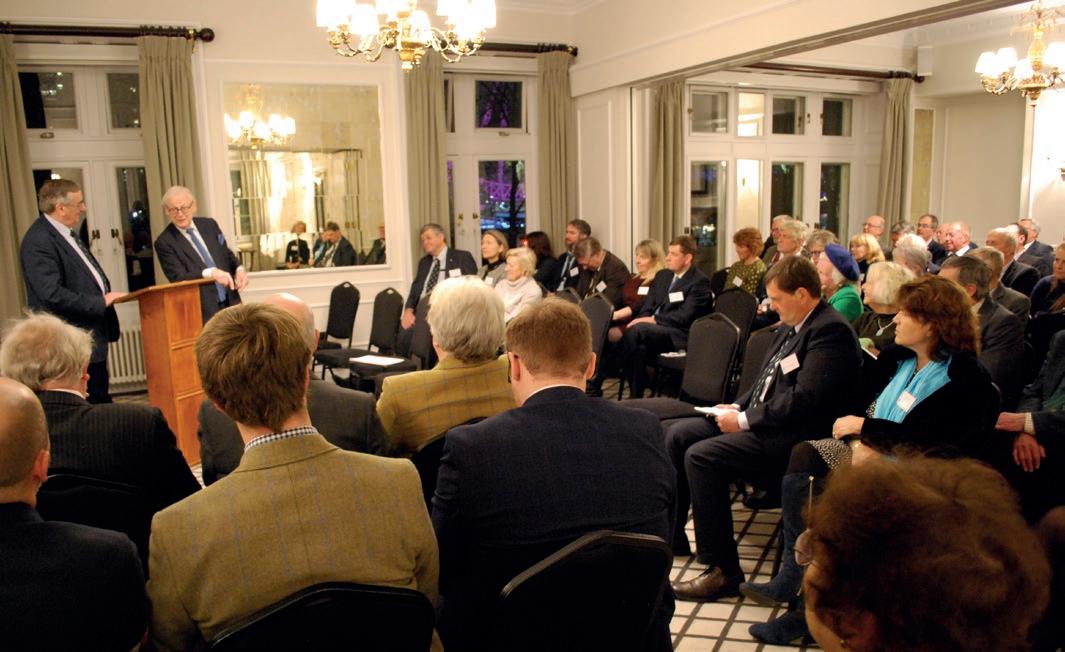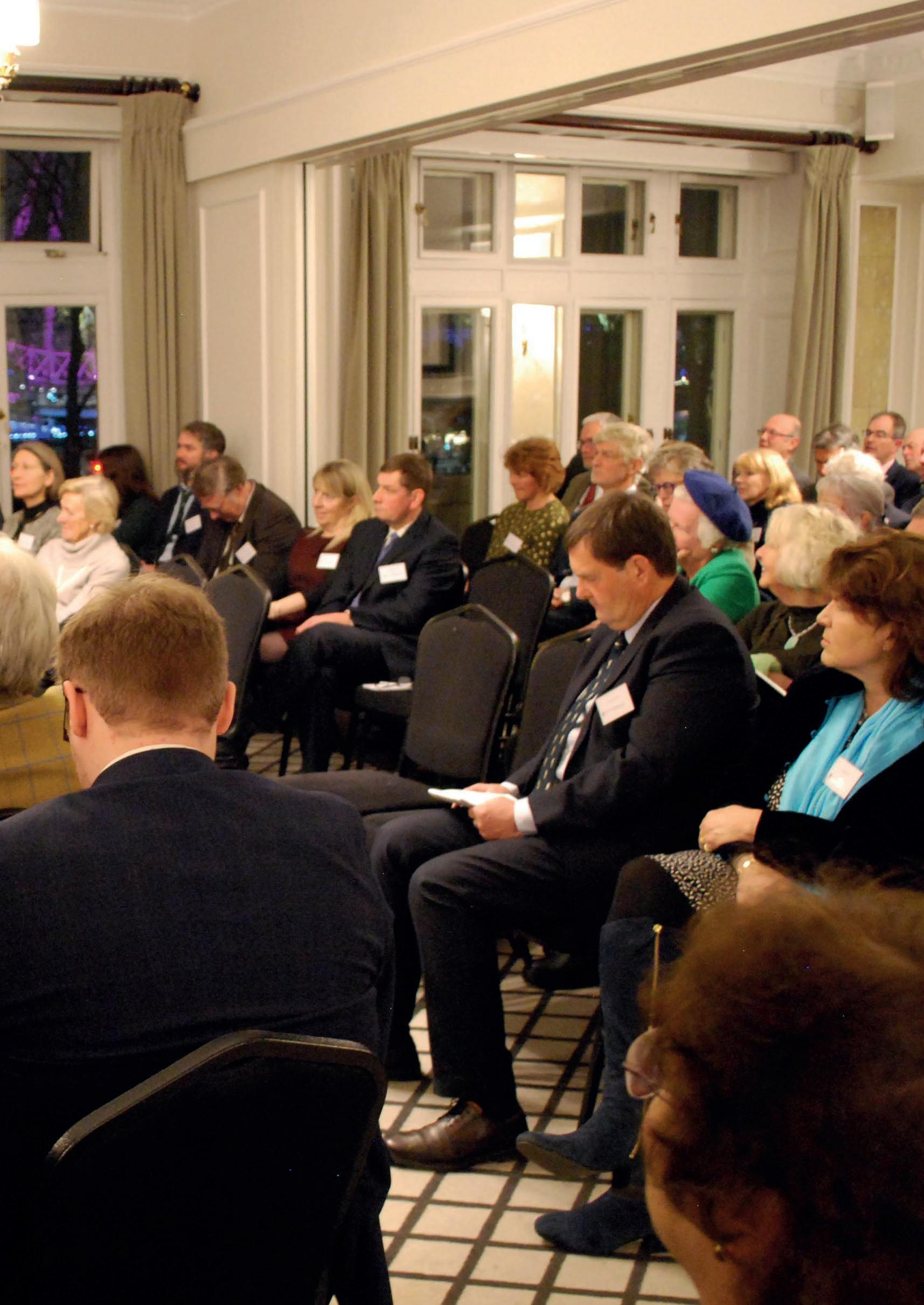
4 minute read
Climate plus
Farming is inextricably linked with climate change. So why won’t Government do more to help farmers respond? Climate Change Committee Chairman Lord Deben delivered his vision with passion. Charles Abel reports
WELCOMING Lord Deben to the first Monday Evening Lecture of the year Club Chairman Meurig Raymond thanked the former Secretary of State for Agriculture, Fisheries and Food for all the help he had given the industry over the years. An hour of vigorous discussion later it was clear Lord Deben’s passion for British farming is entirely undimmed.

An MP for Eye/Suffolk Coastal from 1979 to 2010, John Selwyn Gummer was Conservative Party Chairman in the 1980s and a Cabinet member in the 1990s, most notably during the BSE/mad cow crisis. He rose to the House of Lords in 2010.
The Climate Change Committee, which Lord Deben has chaired for ten years, emerged from the cross-party agreement that led to the 2008 Climate Change Act. Further cross-party agreement is now urgently needed to tackle the climate crisis, he argued.

As an entirely independent, but also statutory, body the CCC draws on the expertise of world-leading scientists and economists to assess the facts and advise Government.

“We only consider the science and in 13 years we have never had the facts we present undermined,” Lord Deben stressed.
National carbon budgets are proposed, and ways of achieving them elucidated, with best and worst case scenarios, and a preferred pathway. “It’s all about proving that climate action is do-able, because we can’t hold Government to an impossible promise.”
Once Government has adopted those carbon budgets changes can only be made with CCC approval. Each June the CCC undertakes a statutory assessment of Government progress, with a Government response required by October. “We have the right to hold their feet to the fire,” Lord Deben emphasised.
Farming perspective
With a small organic beef farm in Suffolk Lord Deben had a good handle of the practical challenges for farming, as it pushes towards national net zero by 2050. Farming has a crucial role to play in that, by both reducing emissions and sequestering carbon. “There is no way we can reach net zero unless [society and politicians] realise the farming community has a very important part to play.”
No life is possible without carbon emissions, he stressed. The challenge is to get the mix of emissions and sequestration right. Helping the planet recover, so it can sequester more carbon, is key – and that includes farmers, and the oceans we well, he said.
“What we are facing is extremely serious and not something that can be put off. The more I know about it the more I see the tipping points really are very near. Here in the UK we depend on the ocean currents and the Gulf Stream, which may not be there in the future.” Elsewhere around the world big impacts are being felt, with changes to the Pacific’s El Nino weather system a particular concern.
Lord Deben had little time for those denying climate change. His passion was evident as he countered speculation and hearsay, slamming the fossil fuel industry’s decades-long deception.“Their scientists knew what was happening, and predicted with uncanny accuracy where we would be now. They actually put off the battle against climate change for 30 years.”
Defra slammed
He was very critical of Defra. Farming had no chance of delivering the benefits it could until Defra clearly showed how it would support them, so farming could make ‘proper decisions’, he said.
Food production was a national good, he insisted. “Being more productive and better at it is key. It is not true we would be better off if we were all vegans. We need animals to create fertility without relying on artificial nutrients. And we need to help farmers be more professional, because the future is going to be difficult.” Until Defra recognises such issues farming’s net zero efforts will be severely hampered.
More respect for soils is key, including regenerative farming. But profits are needed too. “We need a system of farming which accounts for biodiversity, uses mixed farming, and more complex and different rotations. Innovation and investment are crucially important, and we can’t do that unless there is profit and some security.
“We will need to be much more efficient. We don’t have the best productivity in Britain, which means ridding ourselves of wasteful systems.”
A system to make environmentally benign farming possible is needed. ELMS was failing to do that and was likely to put a lot of farming out of business, he suggested.
Proper legislation to ensure overseas trade meets UK standards is needed. Current agreements put UK farming on notice that it will be undermined in 15 years, contrary to political promises.
Not party-political
He urged Government to see climate change as non-party political. January’s Skidmore Report into net zero progress, already accepted by Prime Minister Rishi Sunak and Labour, is a good start. A fundamental programme, including a basic agreement on land use, and how agriculture should be dealt with, is needed.
“It won’t be easy. It is going to be a very tough time for farming. Huge changes have got to take place. So Government needs to stand behind what it has promised. Consistency, very clear coherence, and lasting policies are what agriculture needs.”
Rarely had so much common sense been spoken in so few words, reflected one Club member. But how could the necessary changes be achieved?
Constituency level pressure is key, Lord Deben urged. “Make MPs realise it can’t go on”. Failure to act would leave a lamentable legacy. “Britain has got to do better, because it has done worse than other countries and we are going to pass on a country that is less good than our parents did. That is a terrible statement about us. We have to move fast or the next generation will see us as the generation that destroyed their future.”

MORE INFO
Climate Change Committee – theccc.org.uk
Skidmore Report – search ‘Skidmore’ at gov.uk Lord Deben – search ‘Deben’ at parliament.uk Fossil fuel predictions – search ‘Exxon’ at guardian.com








